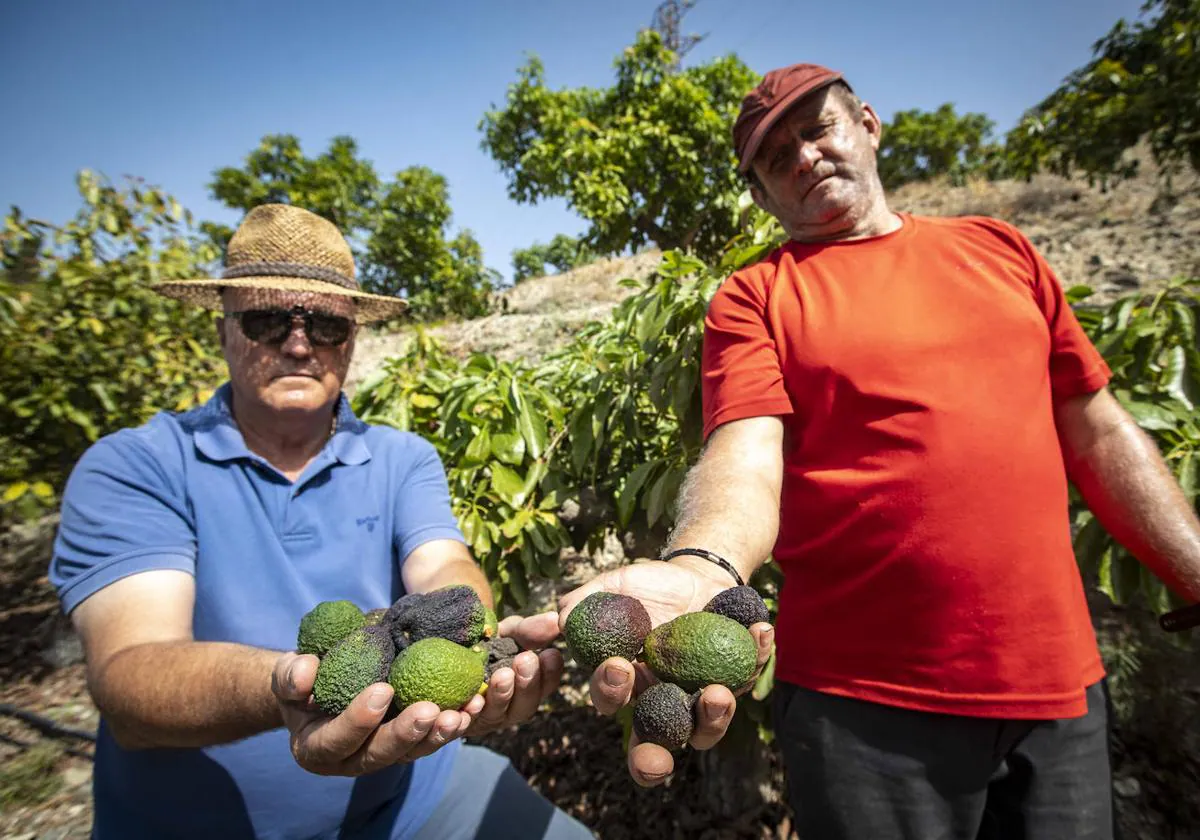Costa Tropical's mango and avocado harvest down by 90 per cent after five years of 'ruin'
More than 2,000 families in Andalucía's Granada province face a losing millions of euros with the custard apple the only crop surviving the weather
Pilar García-Trevijano
Granada
Wednesday, 31 July 2024, 13:08
There is likely to be another calamitous harvest for the subtropical crop growers of the Granada province Costa Tropical coast, which has seen five disastrous seasons in a row. Changing temperatures, together with the long periods of drought, have meant that the trees hardly bear any fruit and are defenceless against pests.
In the Rio Verde valley 95 per cent of producers, more than 2,000 families, are facing a new "disastrous and ruinous" time with 90 per cent of the normal production of crops such as mango and avocado lost. For the moment, only custard apples are surviving the weather.
The agricultural associations estimate that for this season, which starts in September, they will only obtain at most around 20 per cent of what they would have collected in a harvest without the effects of climate change.
Farmers are taking out their calculators and crunching the numbers. The economic losses are expected to be in the millions. In a normal year, the Granada coastline produces on average around 100,000 tonnes of subtropical fruit, according to a Verde Seco, Jate and COAG rivers growers' association. Of this amount, half corresponds to avocado and mango, the rest corresponds to the production of custard apples and other less frequent tropical varieties.
It is "the worst season since records have been kept and much worse than the previous ones, which were already a disaster", Juan Camacho, COAG spokesman, summarised, looking at a land full of blackened avocados that have fallen from the tree and are rotting on the ground.
Most of the blossoms expected to produce fruit have ended in "abortion" and the canopies have very little fruit where they should be heavy with ripening mangoes and avocados on the branches. However, the fruit trees are less affected by the lack of water than in 2023 and are a vibrant green colour instead of a dry yellow thanks to the spring rains. They were not enough to produce a good yield, but they have helped to revive the trees a bit.
"The climatic episodes and the drastic changes in temperature that we have suffered, with peaks of heat and then drops in the thermometer, have meant that the flowers do not last or pollinate correctly and many of the fruits that were expected in the season have ended up aborted", said Camacho.
"Meanwhile, in the case of avocado, the fruits that have grown have fallen later due to the poor condition of the plant after several seasons without water or watering with salt water", the farmers' representative lamented.
Decline in exports
Joaquín Montes, president of the Junta Central de Usuarios del Río Verde Seco y Jate, pointed out that the custard apple tree, which is stronger and less susceptible to changes, has withstood the fluctuations in climate and irrigation well. Moreover, this fruit tree is hand-pollinated and has several cultivation rounds due to its late blossoms.
In the case of the avocado, its situation has been further complicated by the presence of pests including the aerial fungus or the white spider mite that affects avocado trees weakened by years of drought. The only thing that those affected can do is to cut down the damaged trees to stop the infection.
It is estimated that those affected will lose 15,000 euros per hectare in the case of avocado and 16,000 euros in the case of mango crops. In addition, exports will suffer, as around 7,000 tonnes of mango produced on the coast are sold to other European countries every year.
"There is a lot of pessimism among farmers. This harvest is a blow to hundreds of them, who are already talking to their banks to see how they can respond to loans, ask for more credit or sell their farms in order to pay off a debt," Camacho pointed out.
The only consolation that subtropical farmers have left is that, at least, the price of these products remains stable and, in spite of the rise in production costs, the years when the weather is not bad for them, growing these crops still profitable.
